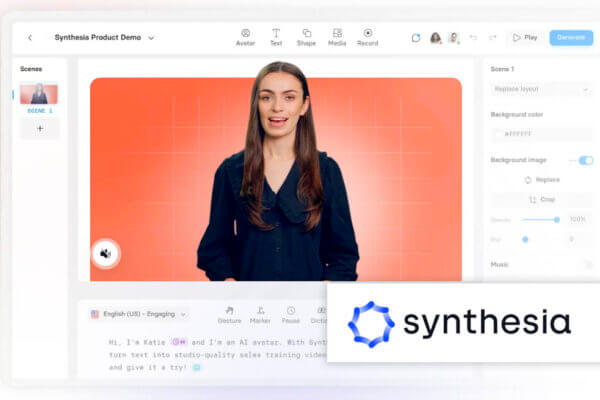In an age where personalization is not just valued but expected, businesses are constantly searching for cutting-edge tools to tailor their services to the individual needs and desires of their customers. Generative AI emerges as a beacon of innovation, providing a new frontier for businesses to engage with their clients like never before.
Understanding Generative AI in the Business World
Generative AI refers to artificial intelligence algorithms that can generate new content, from text to images, videos, and even code, based on learned patterns and data. For businesses, this innovation brings about a seismic shift in how they can interact with and create for their audiences.
The relevance of generative AI in today’s business landscape cannot be overstated. With the capability to automate creative tasks, predict customer behavior, and generate personalized content, it stands to redefine efficiency and effectiveness in business operations.
The Far-reaching Impact Across Industries
Technology
In the tech industry, generative AI sparks transformations in software development, product design, testing, and troubleshooting. It accelerates the development cycle and enables more sophisticated product features, often anticipating user needs before they even emerge.
Marketing
For marketing professionals, generative AI offers an unprecedented level of personalization. From crafting unique marketing copy to generating customized images and videos for each segment of the audience, it ensures that marketing campaigns are highly targeted and incredibly resonant.
Customer Service
In customer service, generative AI has the potential to provide instant, personalized support. Chatbots, powered by generative algorithms, can have fluid, human-like interactions, solving problems and upselling products in real-time.
Generative AI can tailor solutions to individual customers’ history and preferences, offering a level of service previously unattainable by human agents alone.
Healthcare
Generative AI holds immense potential in the healthcare industry by revolutionizing patient care and medical research. It can synthesize medical data to assist in diagnostics, personalize treatment plans, and even predict patient outcomes. In drug development, AI algorithms can expedite the discovery of new compounds and predict their effectiveness and side effects, considerably reducing the time and cost associated with bringing new medicines to market.
Education
In education, generative AI can create customized learning experiences, adapting materials to fit the learning pace and style of each student. It can generate interactive content, such as simulations and educational games, that make learning more engaging. Additionally, AI-driven tutors can provide personalized feedback and support, ensuring students receive assistance tailored to their specific needs and queries.
Finance
The finance sector also benefits from the advances in generative AI, particularly in fraud detection, risk management, and personalized customer service. Financial institutions can use generative AI to simulate market scenarios and make predictions, aiding in investment decision-making. On the consumer side, AI can generate personalized financial advice and automate customer interactions, providing timely and tailored assistance.
Streamlining Operations and Enhancing Productivity
The ability of generative AI to automate complex tasks extends well beyond just generating content. It can streamline operational flows by predicting outcomes, reducing manual interventions, and minimizing errors. Generative AI constitutes a force multiplier for productivity, allowing teams to focus on strategy and creativity while mundane tasks are handled by smart algorithms.
Examples of Streamlining Operations and Enhancing Productivity
Generative AI's ability to streamline operations and enhance productivity is demonstrated in various practical applications across industries.
For instance, a retail company might use generative AI to automate inventory management, predicting stock levels based on real-time sales data and seasonal trends, thus reducing overstock and shortage scenarios.
In manufacturing, AI algorithms can optimize production schedules and maintenance routines, predicting equipment failures before they happen and scheduling repairs during non-peak hours to minimize downtime.
In the realm of content creation, generative AI can produce initial drafts of reports, articles, or marketing copy, enabling human staff to spend more time refining and personalizing the content instead of starting from scratch.
These examples illustrate how generative AI not only simplifies and accelerates tasks but also significantly reduces the risk of human error, leading to more efficient and productive business operations.
Real-world Success Stories
The proof of generative AI’s value shines in its success stories. For instance, a major retailer used generative AI to design new clothing items based on trending styles and customer feedback, drastically reducing time-to-market and increasing sales. Another example is a news outlet employing AI to generate articles for niche audiences, increasing engagement and subscriber retention.
Navigating the Challenges and Ethical Considerations
Despite the promising applications, generative AI presents challenges and ethical dilemmas. Issues of data privacy, intellectual property, deepfakes, and misinformation are critical considerations that businesses must address. The responsible use of generative AI obliges companies to establish stringent guidelines and ethical frameworks to ensure that their innovation aligns with societal norms and regulations.
Looking Towards the Future
The trajectory of generative AI is steep and ascending. Its potential to personalize experiences and unveil new levels of innovation in business operations is unparalleled. With continuous advancements in AI and machine learning, the possibilities for generative AI are virtually limitless. Companies that adopt and adeptly integrate this technology will undoubtedly lead the charge into a future shaped by personalization and efficiency.
Business decision-makers, tech innovators, and marketing gurus—the call to action is clear: to remain competitive and innovative, you must recognize generative AI as a critical asset in your arsenal. Its ability to spark personalization at scale is a game-changer for business innovation, promising a landscape where tailored customer experiences and operational excellence become the benchmarks of success.







